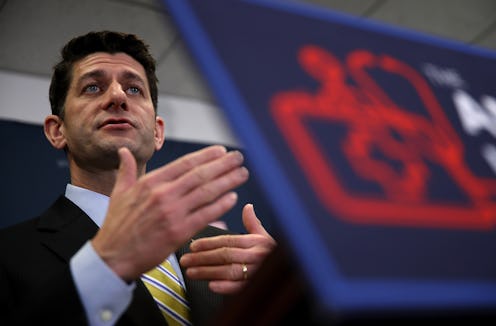
House Speaker Paul Ryan told Fox News Sunday that Republicans are addressing some concerns for their health care bill by potentially boosting tax credits for elderly Americans, introducing a work requisite for the Medicaid program for lower-income and able-bodied citizens, and implementing federal block grants for states. Ryan indicated that there might be changes to the GOP health care bill by saying, "We think we should be offering more assistance than the bill currently does."
Although Ryan said he felt "very good" about the bill's future in the House, there is no certainty whether the bill will adequately meet the burgeoning demands of American citizens. One of the bill's biggest critics, the House Freedom Caucus, continues to oppose the American Health Care Act (AHCA) and casts doubt on the passage of the bill, according to The Hill. In the same publication, Michigan Rep. Justin Amash claimed that the bill to repeal and replace Affordable Care Act does not have all conservatives' approval.
Potential changes to the GOP health care bill may include a work requisite for Medicaid recipients. According to CNN Money, Republicans believe that the requisite will satisfactorily prepare recipients to make the change from government assistance to employment, but critics say that Medicaid recipients, who are able-bodied, are already working and will only face impediments — involving commute and child care coverage — if more recipients are made to look for work.
Another potential change to the health care bill would allow states to gain Medicaid funding in the form of a block grant. In this case, states will potentially receive a certain amount of funding annually, no matter how many participants in the Medicaid program. This may impact federal support and slash the number of people receiving coverage.
Another change for the bill indicates boosted tax credits for older Americans. This comes after critics highlight the glaring inefficiencies in the bill to address health care for Americans aged 50 or above. According to a Congressional Budget Office report, the percent of uninsured Americans of this age range can rise from 13 percent to roughly 30 percent by 2026 under the AHCA, including people with lower income.
While Republican infighting ensues over the bill, critics highlight the bill's potential failure to address critical issues for elderly Americans. Senior writer Ann Brenoff wrote in the Huffington Post that the AHCA kicks premiums up for elderly Americans, puts nursing homes in a shaky position for those needing it the most, takes away the mandate for companies to offer health insurance, and puts the option of early retirement for Americans in doubt.
In all of this, it's becoming increasingly obvious that the AHCA may devastate the very same people — older rural lower income Americans — who passionately voted for Trump when he vowed to repeal and replace Obamacare.